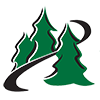Introduction and Overview
Dakota College at Bottineau is a public community college located in Bottineau, North Dakota, USA. The college offers a wide range of associate degree programs, certificate programs, and diploma programs in a variety of disciplines including agriculture, business, health sciences, information technology, and more. It plays a key role in cultivating technical and applied talents for the local community.
History and Founding Time
The college has a long history, and its origins can be traced back to 1906, when it was originally established as an agricultural school. After years of development and evolution, it became part of the University of North Dakota system in 1987 and adopted its current name.
School Strength
Faculty: It has an experienced team of teachers who are not only specialized in academic teaching, but also focus on practical guidance. The reasonable teacher-student ratio can provide students with personalized teaching services and ensure that students receive full attention during the learning process.
Academic Achievements: It has certain research results in the fields related to agriculture and natural resources, providing technical support for local agricultural development. Its graduates of health sciences also perform well in the regional medical industry and have achieved remarkable results in cultivating professional talents for the community.
Teaching resources: It is equipped with modern teaching facilities, such as advanced laboratories, training centers that simulate medical environments, etc., to meet the practical learning needs of students of different majors. At the same time, the college also has rich online learning resources to facilitate students to conduct distance learning.
Nature of the institution
This is a public community college. As a member of the University of North Dakota system, it also has certain cooperative relations with other colleges and universities. It is mainly committed to providing high-quality vocational education and transfer education for local communities and surrounding areas.
Educational philosophy
Focus on practical teaching, emphasize the combination of theoretical knowledge and practical application, and cultivate students' professional skills and ability to solve practical problems. At the same time, it also pays attention to students' personal development and encourages students to actively participate in community services and practical activities to improve their comprehensive quality.
Key laboratories and disciplines
Key disciplines: Agriculture and natural resources are its traditional advantageous disciplines with a profound historical accumulation. The health science major has also attracted much attention, including professional directions such as nursing and medical assistants. In addition, the information technology major has also performed well in cultivating technical talents that meet the needs of modern society.
Key laboratories: The agricultural laboratory is one of the key laboratories, which is used to carry out experimental projects such as crop planting and soil analysis. In the field of health sciences, there are practical training facilities such as simulated wards and nursing skills laboratories to provide students with real medical scenario simulation training.
Departments
Although there is no clear division of departments, from the perspective of professional settings, it can be roughly divided into the Department of Agriculture and Natural Resources, the Department of Health Sciences, the Department of Business and Information Technology, etc. Each department is responsible for the planning and teaching of courses in the corresponding field.
Rankings
Performs well in community college rankings. It has a high reputation and recognition among community colleges in North Dakota. For example, in some regional education evaluations, it has been praised for its advantages in agricultural education and vocational training.
Costs
For students in North Dakota, tuition is relatively low, and tuition for out-of-state students is slightly higher. At the same time, the college offers a variety of scholarships, grants and financial aid programs to help students reduce their financial burden. The specific costs will vary depending on factors such as course type and number of credits.
Campus environment
Campus facilities: The campus occupies a moderate area and has modern teaching buildings, libraries, student dormitories, cafeterias and other facilities. The agricultural experimental field on campus is a major feature, providing a place for agricultural students to practice. In addition, the training building for health science majors is equipped with complete medical equipment.
Campus culture: The campus culture is positive and focuses on student participation and interaction. The college often organizes various club activities, cultural festivals and sports events to create an active campus atmosphere.
Campus safety: Campus safety measures are in place, with a 24-hour security patrol and monitoring system to provide students with a safe learning and living environment. At the same time, the public security situation in Botinno Town is good, which also provides a guarantee for campus safety.
-

Harvard University
-

Massachusetts Institute of Technology
-

South University
-

University of West Georgia
-

Stanford University
-

Northwest Nazarene University
-

Hawaii Pacific University
-

Shorter University
-

Nova Southeastern University
-

Saint Leo University
-

Mesoamerican University
-

Istmo University
-

Mariano Galvez University of Guatemala
-

Regional University of Guatemala
-

Galileo University
-

Francisco Marroquín University
-

Rafael Landívar University
-

University of the Valley of Guatemala
-

University of San Carlos of Guatemala
-

Technological Institute of Tlaxcala Plateau
-

Golfo University
-

Technological University of South Sonora
-

Technological University of Huejotzingo
-

Tizimín Institute of Technology
-

Chilpancingo Institute of Technology

